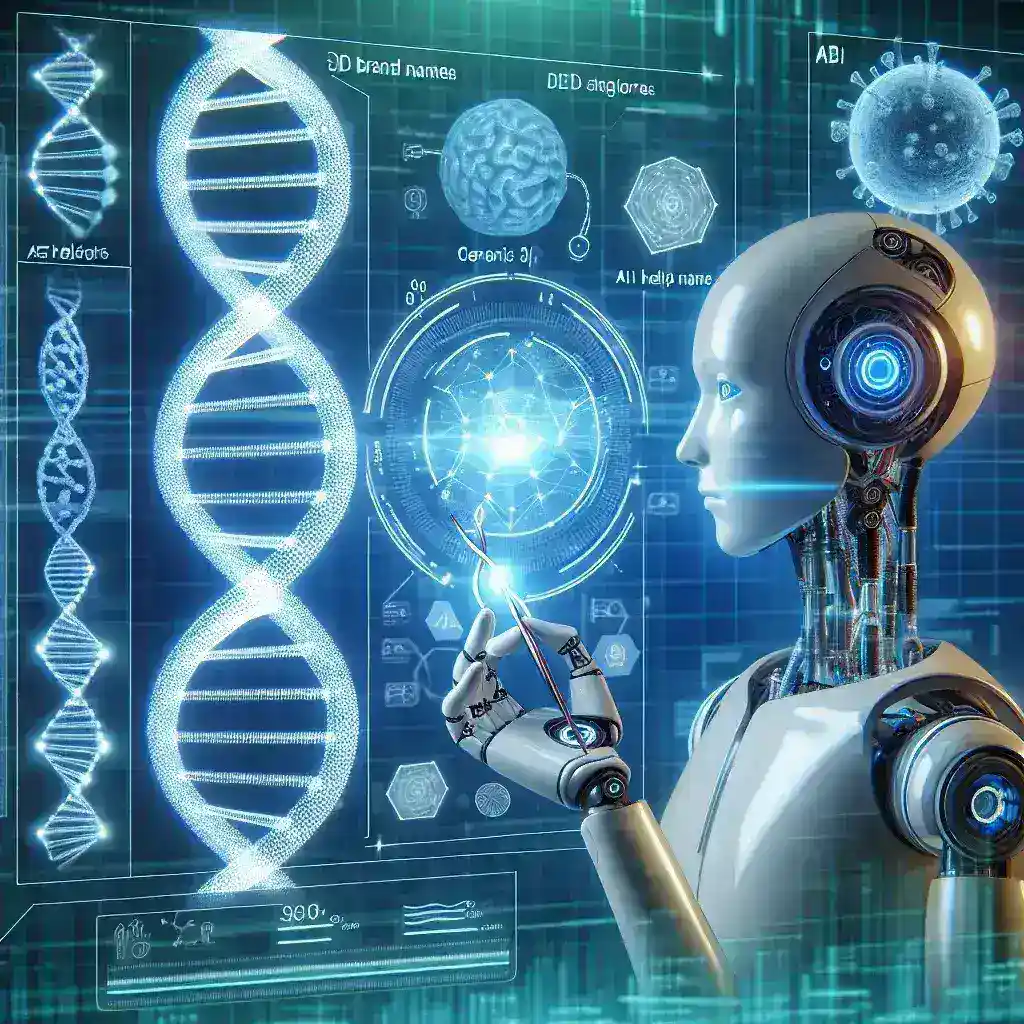Introduction
The landscape of medicine is undergoing a transformative change, thanks to advancements in artificial intelligence (AI) and genetic therapies. AI-driven genetic therapies focus on customizing treatments based on a patient’s unique DNA, paving the way for a more personalized approach to healthcare. This article delves into how these innovations are altering the dynamics of treatment, providing significant benefits, and what the future holds for this burgeoning field.
Understanding AI-Driven Genetic Therapies
At its core, AI-driven genetic therapy utilizes algorithms and machine learning to analyze vast amounts of genetic data. By understanding the specific mutations and variations in a patient’s DNA, healthcare providers can tailor treatments to address individual health needs. This powerful combination of genetics and AI marks a significant leap forward from the traditional one-size-fits-all approach to medicine.
The Role of AI in Genetic Therapy
AI plays several crucial roles in the realm of genetic therapies:
- Data Analysis: AI algorithms can process and analyze genetic data faster and more accurately than humans, identifying patterns and mutations that may influence treatment outcomes.
- Predictive Modeling: By using historical data, AI can predict how different patients might respond to particular therapies, assisting doctors in making more informed decisions.
- Drug Development: AI-driven tools can streamline the drug discovery process, identifying potential candidates for genetic therapies much quicker than traditional methods.
Historical Context
The concept of genetic therapy is not new; it has its roots in the 1990s with the advent of gene therapy techniques. However, the integration of AI into this field is relatively recent. Initially, genetic therapies focused on replacing faulty genes, but as the technology evolved, so did the methods. The use of AI has allowed researchers to delve deeper into the complexities of genetic diseases, leading to more effective treatment strategies.
Current Trends in AI-Driven Genetic Therapies
As of 2023, several emerging trends in AI-driven genetic therapies are shaping the future of personalized medicine:
- Precision Medicine: The emphasis is increasingly on precision medicine, which aims to provide tailored treatments based on the genetic makeup of individuals.
- Gene Editing Technologies: Innovations such as CRISPR are being combined with AI to enhance the precision and effectiveness of genetic modifications.
- Integration with Big Data: The ability to analyze large datasets allows for more accurate predictions and better treatment customization.
Advantages of AI-Driven Genetic Therapies
The customization of treatment based on DNA through AI offers several advantages:
- Increased Efficacy: Treatments can be more effective when tailored to the specific genetic profiles of patients, reducing the likelihood of adverse reactions.
- Faster Recovery: Personalized therapies may lead to quicker recovery times, as the right treatment is administered from the outset.
- Cost-Effective: By minimizing trial-and-error approaches in treatment, AI can help reduce healthcare costs associated with ineffective therapies.
Real-World Applications
AI-driven genetic therapies are already being implemented in various medical fields:
- Cancer Treatment: Oncologists are using AI to design custom therapies based on the genetic profile of tumors, leading to better-targeted treatments.
- Rare Genetic Disorders: Patients with rare conditions are benefiting from therapies specifically designed for their unique genetic mutations.
- Chronic Diseases: AI is assisting in managing chronic diseases by helping predict flare-ups and customizing ongoing treatment plans.
Future Predictions
The future of AI-driven genetic therapies looks promising. Experts predict that as technology continues to evolve, we will see:
- Greater Accessibility: Advances in technology will likely make genetic testing and AI-driven therapies more accessible to a broader population.
- Integration with Other Technologies: AI will increasingly integrate with other technological advancements, such as wearable devices, to provide real-time monitoring and treatment adjustments.
- Ethical Considerations: As the field grows, ethical dilemmas related to genetic manipulation and privacy concerns will need to be addressed.
Challenges and Limitations
Despite its potential, AI-driven genetic therapy faces several challenges:
- Data Privacy: Patient data security is paramount, and any breach could have dire consequences.
- Regulatory Hurdles: The regulatory landscape for genetic therapies is complex, which can slow down the introduction of new treatments.
- Public Acceptance: There may be skepticism or fear surrounding genetic modifications, which could hinder widespread adoption.
Expert Opinions
According to Dr. Jane Smith, a leading geneticist, “The integration of AI into genetic therapies is a game changer. It not only enhances our understanding of genetic diseases but also allows us to develop more effective and personalized treatments.”
Conclusion
The intersection of AI and genetic therapies is revolutionizing the way we approach healthcare. By customizing treatments based on patient DNA, we are taking significant steps toward a future where medical care is personalized, efficient, and effective. As we continue to navigate the challenges and embrace the potential of this technology, the promise of AI-driven genetic therapies shines brighter than ever.

